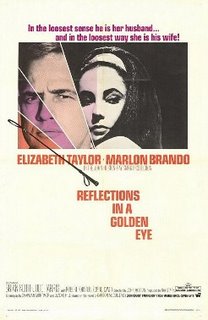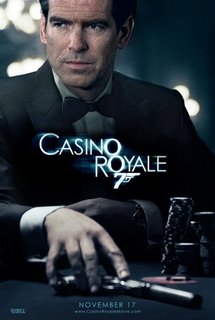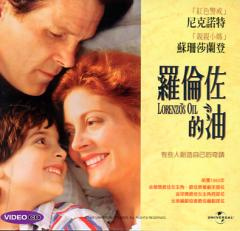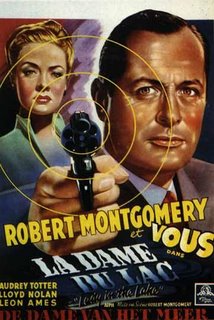 /The Apple/ (1980, Menahem Golan) [a D-/A- split]
/The Apple/ (1980, Menahem Golan) [a D-/A- split]I would pay a significant fee to go back in time and stare at Chuck Norris’ face as he watched this while researching his
Delta Force director. Do you really think Golan (to your left, deep in thought) had the sense to hide it from him? Also, when Joss Ackland abruptly and inexplicably goes from playing a Gandalf-esque hippie leader to a slick-haired God within a single scene is...not even one of the craziest parts of this crazy-ass picture. Speeeeeeed!!
Night of the Comet (1984, Thom Eberhardt) [C]I was under the impression, for some reason, that this apocalyptic ‘80s teen comedy was essentially
The Omega Valley Girls. Who knows, maybe that’s what Eberhardt was going for. But that’s not what leads Catherine Mary Stewart (of
The Apple!) and Kelli Maroney appear to be doing, so what in the fuck, in my opinion. (If that
is what they’re doing, it’s the subtlest portrayal of a stereotype yet.) A total muddle of a faintly promising idea, saved periodically by Mary Woronov, who both brings her game and plays a part in a couple genuinely inventive death scenes. Tellingly awkward-but-awesome line: “I’m not insane - I just don’t give a fuck!”
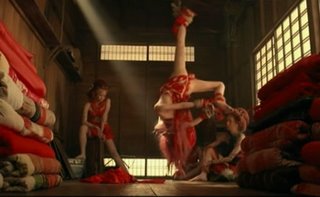 Imprint (from “Masters of Horror) (2006, Takashi Miike) [B+]
Imprint (from “Masters of Horror) (2006, Takashi Miike) [B+]I have yet to see
The Great Yokai War, nor have I stumbled upon
Big Bang Love: Juvenile or any of the ten others he’s made in the interim. But it seems to me that Miike is on something of a streak of late. And surely, it’s no coincidence that two of them --
Box, his contribution to
Three...Extremes, and this, his (unaired!) contribution to Showtime’s “Masters of Horror” series -- happen to be of the short-to-medium-length variety. Here’s the thing with Takashi Miike: even though he’s often depicted as a paint-dribbler, crazily dropping ideas and images in the hopes that a couple of them will stick, he’s not only capable of a strong semblance of structure and order, but he actually excels at it. (Either that or at least a narrowly-defined template, like another recent work,
Izo, which milks the “damned samurai is stuck traveling through time, murdering people” for all its worth, and then some.) Like
Box,
Imprint benefits from a pretzeled, hermetic structure, one that hops through time and blurs the fiction-reality line something fierce. In just a hair over an hour, Miike presents a full and horrifying portrait of patriarchal wrath that’s largely carried by women; switches protagonists (and stories), from Billy Drago’s obsessive journalist to Youki Koudoh’s disfigured prostitute; and, by hopping around various time lines and plots, makes a film that feels like it would be better off watched sideways, not front to end. As the proverbial cherry on top, he even puts the gruesome torture, needle-laden torture scene not at the climax but at the halfway mark. That said, just what does Billy Drago think he’s doing. That guy’s fucking crazy.
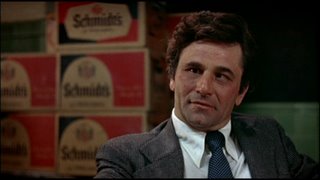 Mikey and Nicky (1976, Elaine May) [B+]
Mikey and Nicky (1976, Elaine May) [B+]Starts off like May aping Cassavetes' shtick with his own help (as well as Peter Falk’s); quickly develops into its own thing, though still very much a reworking of one director’s signature style. You kind of expect May to amp the macho bullshit, all the better to expose it. But she’s really with these two, as they take a long, dark journey of the (‘70s Philly) night, not to mention participate in a disturbing and fascinating portrait of male friendship. (Likewise, the brutality towards women isn’t cut down, though its impact is given extra stressing.) What she doesn’t do, in essence, is try to act as though it’s real, or The Truth, as Cassavetes had been doing up till that point. The stress is on the high theatrics of the performances, which rank near the top on both actors’ resumes: Cassavetes was never more quintessentially Cassavetesian that he was here, while Falk emerges as a truly tragic figure, honestly hurt by the way his friend treats him but also stuck with a need to one-up him, even if it means turning him over to the crime bosses who want his hide. It’s no
Killing of a Chinese Bookie, the Cassavetes-directed release of the same year, but it’s close.
Stranger Than Fiction (2006, Marc Forster) [C+]Likeable enough, thanks to strong turns from Emma Thompson, Dustin Hoffman and a reasonably human spin on the kooky babe character by Maggie Gyllenhaal. But I have to go with
Jim Ridley -- this is just a whimsy pile-up, a welter of promising ideas with little to no organization. Even Will Ferrell’s discovery of the voice is blown, coming far too early (or late) in the picture and for no discernible reason. What caused Ferreal to hear the voice? For that matter, why did this Zach Helm guy think it was such a great idea to have Ferrell and Thompson occupy the same universe? That this revelation produces, like, two bats of the eye from the characters, en total, is depressingly indicative of the lack of imagination on display. Against my better defenses, I found the film’s exclamatory ode to breaking out of one’s rut unexpectedly moving; decidedly less so its dubious and thin hatred for aspiring artists. Also, can I call a moratorium on screenwriter’s writing about novelists if they can’t convincingly reproduce believable prose on the screen, in particular if said novelist is apparently ace enough to ensnare literary professors? Thanks kindly.
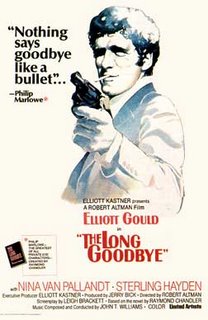 The Long Goodbye (1973, Robert Altman) [A]
The Long Goodbye (1973, Robert Altman) [A]I really forgot how fucking nuts this is, as in wall-to-wall. It’s not just every scene that has something offbeat in it, but just about idea, from the academic-stoner guy Elliott Gould’s Marlowe shares a cell with during his prison stay to the way the entire soundtrack, save for sarcastic “Hooray For Hollywood” bookends, is variations on the title song. This is Raymond Chandler, old Raymond Chandler movie adaptations (the screenplay is credited to Leigh Brackett, who wrote such things as
The Big Sleep), the ‘70s, the ‘40s, film noir, Hollywood and Altman himself caught in a 112-minute time warp, floating around eachother, intermingling and making new cross-associations. The film is relentlessly and genuinely unpredictable, best exemplified by the moment where Mark Rydell’s initially harmless-seeming Jewish mafioso professes his sincere love to his air-brained mistress before smashing her face with a bottle to prove a modest point. Impossible to pin down, and restlessly experimental -- indeed, the shot through Sterling Hayden and Nina Van Pallandt’s patio door, in which you get both a fuzzy, hopelessly obscured image of the two arguing as well as a distant image of Gould dancing around on the beach, is probably the farthest Altman ever went into the visual ether. I’ll spill one for you, Bobby A.
[Seen for Da Weekly: And If Tomorrow? (2005, Giovanni La Parola) [C+]; /Dead Man/ (1995, Jim Jarmusch) [from a C to an A-]; Climates (2006, Nuri Bilge Ceylan) [B+]]






